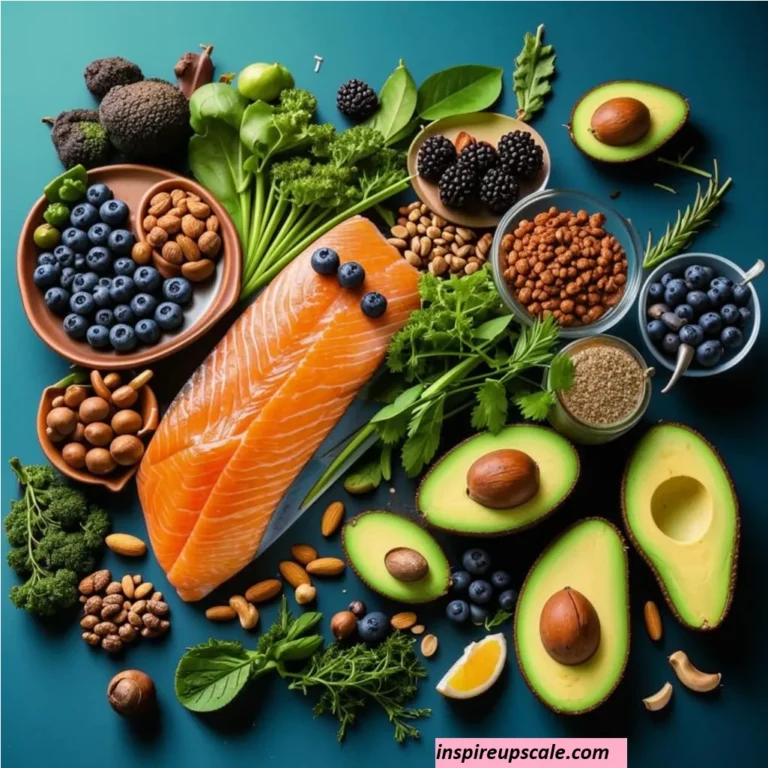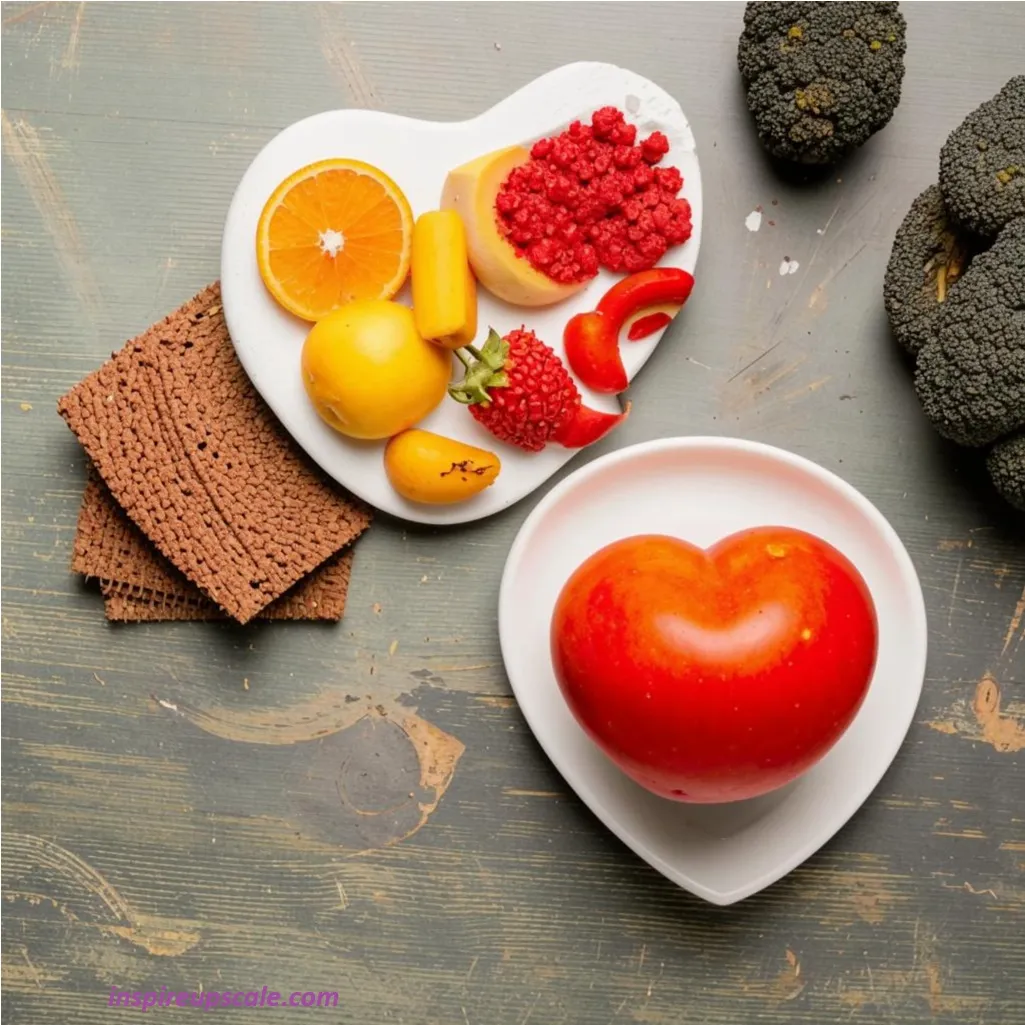Introduction
Cardiovascular disease claims nearly 18 million lives globally each year, but research shows that heart-healthy foods can reduce the risk by up to 70% (American Heart Association, 2023). What you eat directly impacts arterial health, cholesterol levels, and blood pressure. This guide dives into the top cardiovascular health foods, debunks myths, and offers practical tips to transform your plate into a powerful tool for heart protection.
Why Diet is the Cornerstone of Cardiovascular Health
Your heart thrives on nutrient-dense foods that combat inflammation, lower LDL cholesterol, and improve blood vessel elasticity. Unlike fad diets, a sustainable heart-healthy food plan focuses on whole, minimally processed ingredients rich in fiber, antioxidants, and healthy fats. Let’s explore the science-backed foods that protect your heart.
Top 10 Cardiovascular Health Foods to Add to Your Diet
1. Fatty Fish (Salmon, Mackerel, Sardines)
Why It Works: Packed with omega-3 fatty acids, fatty fish reduce triglycerides, fight inflammation, and prevent plaque buildup.
Science Says: Eating fish twice weekly lowers heart attack risk by 36% (Journal of the American College of Cardiology).
Serve It: Grill salmon with lemon and dill, or add sardines to salads.
2. Leafy Greens (Spinach, Kale, Swiss Chard)
Why They Work: High in nitrates, leafy greens improve blood flow and reduce arterial stiffness. Their vitamin K content also prevents calcium buildup in arteries.
Pro Tip: Sauté greens in olive oil with garlic for a flavor and heart boost.
3. Berries (Blueberries, Strawberries, Raspberries)
Why They Work: Anthocyanins, the antioxidants in berries, reduce oxidative stress and LDL cholesterol.
Study Spotlight: A 2021 Harvard study found that 3 servings/week of berries lower heart disease risk by 34%.
4. Nuts and Seeds (Walnuts, Almonds, Chia Seeds)
Why They Work: Rich in unsaturated fats, fiber, and magnesium, nuts improve cholesterol and reduce hypertension.
Portion Control: Aim for a handful (1 oz) daily to avoid excess calories.
5. Whole Grains (Oats, Quinoa, Brown Rice)
Why They Work: Beta-glucan fiber in oats binds to cholesterol, while quinoa’s magnesium relaxes blood vessels.
Recipe Idea: Swap white rice for quinoa in stir-fries or breakfast bowls.
6. Legumes (Lentils, Chickpeas, Black Beans)
Why They Work: High in soluble fiber, legumes lower LDL cholesterol and stabilize blood sugar.
Budget-Friendly: Use lentils as a meat substitute in tacos or soups.
7. Avocados
Why They Work: Monounsaturated fats in avocados raise HDL (“good”) cholesterol and reduce arterial inflammation.
Quick Fix: Spread avocado on whole-grain toast instead of butter.
8. Dark Chocolate (70%+ Cocoa)
Why It Works: Flavonoids in dark chocolate improve blood flow and lower blood pressure.
Moderation: Stick to 1–2 small squares daily to avoid added sugar.
9. Garlic
Why It Works: Allicin, a compound in garlic, reduces blood pressure and prevents hardening of the arteries.
Tip: Crush garlic and let it sit for 10 minutes before cooking to activate its benefits.
10. Extra Virgin Olive Oil
Why It Works: Polyphenols in olive oil protect blood vessels and reduce LDL oxidation.
Use It: Drizzle over salads or roasted veggies instead of using butter.

How to Build a Heart-Healthy Meal Plan
Transform these cardiovascular health foods into balanced meals:
Breakfast: Oatmeal topped with blueberries, chia seeds, and walnuts.
Lunch: Spinach salad with grilled salmon, avocado, and olive oil dressing.
Dinner: Quinoa-stuffed bell peppers with lentils and a side of steamed broccoli.
Snacks: Almonds, dark chocolate, or carrot sticks with hummus.
Pro Tip: Use the “50/25/25” plate rule—50% veggies, 25% lean protein, 25% whole grains.
Foods to Avoid for Optimal Heart Health
While adding good food for the heart, limit or eliminate:
Processed Meats: Bacon, sausages, and deli meats are high in sodium and preservatives.
Trans Fats: Found in fried foods and baked goods, they spike LDL cholesterol.
Sugary Drinks: Sodas and energy drinks contribute to obesity and diabetes.
Excess Salt: Over 2,300 mg daily can raise blood pressure.
Read Also:
Heart Health – 7 Proven Facts
Heart Health – 7 Proven Facts and Guide to a Stronger Cardiovascular System
Debunking Myths About Cardiovascular Health Foods
Myth: “All fats are bad for the heart.”
Truth: Unsaturated fats (avocado, olive oil) protect your heart. Avoid trans and saturated fats.Myth: “Heart-healthy food is bland and boring.”
Truth: Spices like turmeric, cayenne, and rosemary add flavor while boosting circulation.Myth: “Red wine is a must for heart health.”
Truth: While antioxidants in red wine may help, excessive alcohol harms the heart. Stick to moderation.
The Role of Supplements in Heart Health
While whole foods are best, some supplements can complement your diet:
Omega-3s (Buy on Amazon): For those who don’t eat fish.
CoQ10🙁Buy on Amazon) Supports energy production in heart cells.
Magnesium: (Buy on Amazon)Helps regulate blood pressure.
Always consult a doctor before starting supplements.
Recognizing Hidden Risks in Cardiovascular Health Foods
Beware of misleading labels:
“Low-fat” snacks often replace fat with sugar.
“Multigrain” doesn’t mean whole grain—check for “100% whole wheat” on labels.
Plant-based meats can be high in sodium and preservatives.
Conclusion: Your Heart-Healthy Food Journey Starts Today
Adopting a diet rich in cardiovascular health foods doesn’t require perfection—start with small swaps. Replace chips with nuts, soda with herbal tea, or butter with avocado. Track how these changes make you feel: more energy, better digestion, and peace of mind knowing you’re protecting your heart.
Call to Action: Share this guide with loved ones! Bookmark it for meal inspiration, and commit to trying one new heart-healthy food this week.


